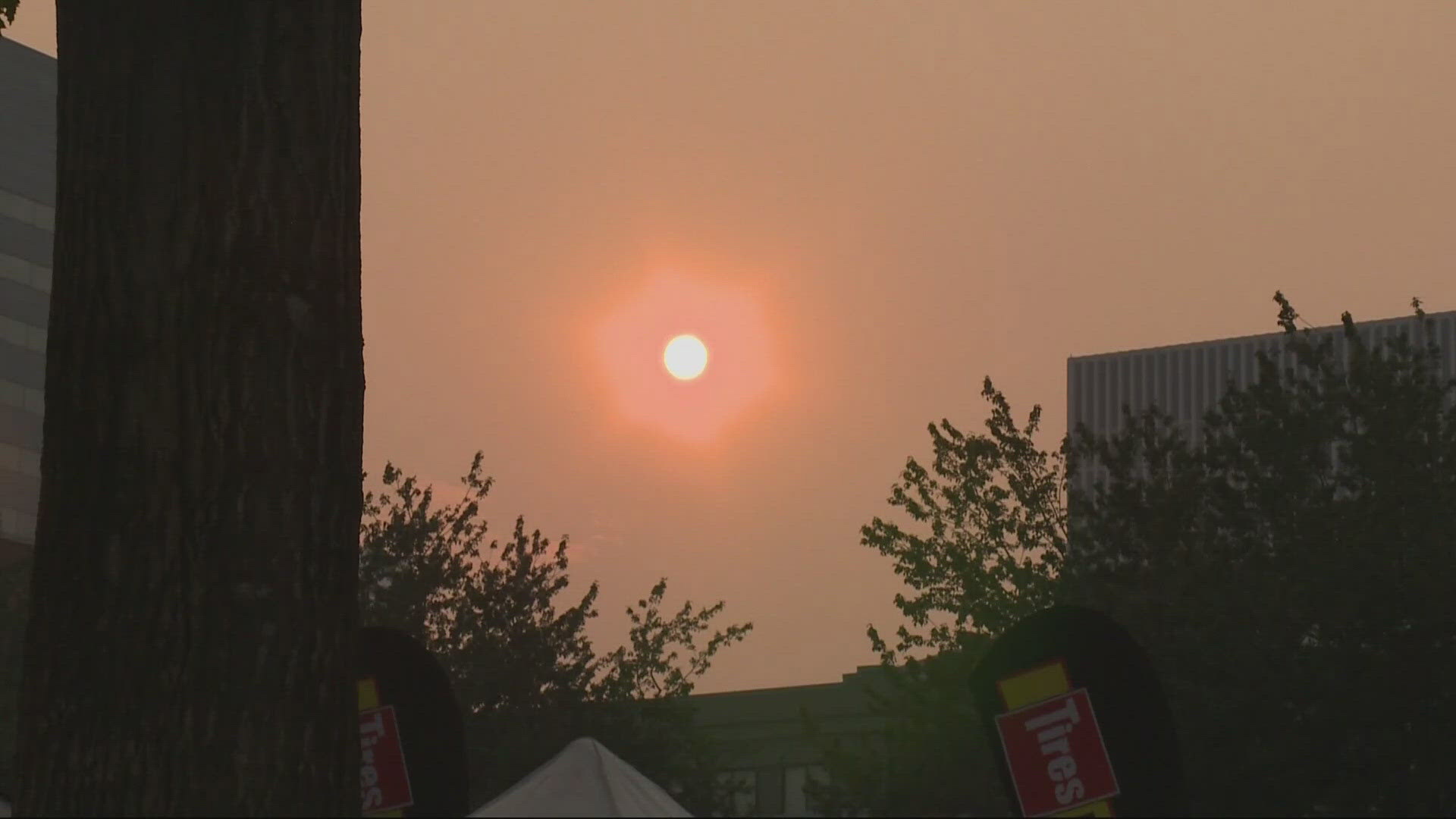OREGON, USA — A new report released by researchers from the University of Oregon and Reed College warned that climate change is already costing Oregonians thousands of dollars a year.
Researchers used publicly available data to estimate what wildfires, extreme heat, bad air quality and other events are costing residents. They found that wildfires cost the average household close to $4,000 annually through mitigation efforts, recovery and rising insurance costs.
“Oregonians are already feeling the economic effects of climate change, whether that is through the cost of your insurance, or it’s the cost of your healthcare or the cost of food at the grocery store. Climate change is impacting all of those things,” said Keaton Miller, an associate professor of economics at the University of Oregon.
Miller, along with other researchers, spent about four months compiling the data. They estimated that roughly $12,000 a year is lost in personal income per year due to greenhouse gases already in the atmosphere.
“The greenhouse gases that are in the atmosphere are affecting the global economy, and that hits us here at home. It hits us in everything that we buy, and it’s going to continue to hit us in the future,” added Miller.
Other findings show that it costs Oregon households in an area with wildfire smoke about $450 a day due to canceled trips, keeping children at home to minimize their exposure and through purchases, like air filters.
“If we stay on the same trajectory, things are going to get worse, not better,” Miller warned.
However, researchers say the point of the study is not to cause fear. They hope that presenting costs of climate change in ways people can understand will inspire local policy action to avoid worst-case scenarios.
“We are not powerless here — we can prepare for what’s coming, we can proactively adapt to climate change, and every effort that we make now will make the future easier,” Miller said.

